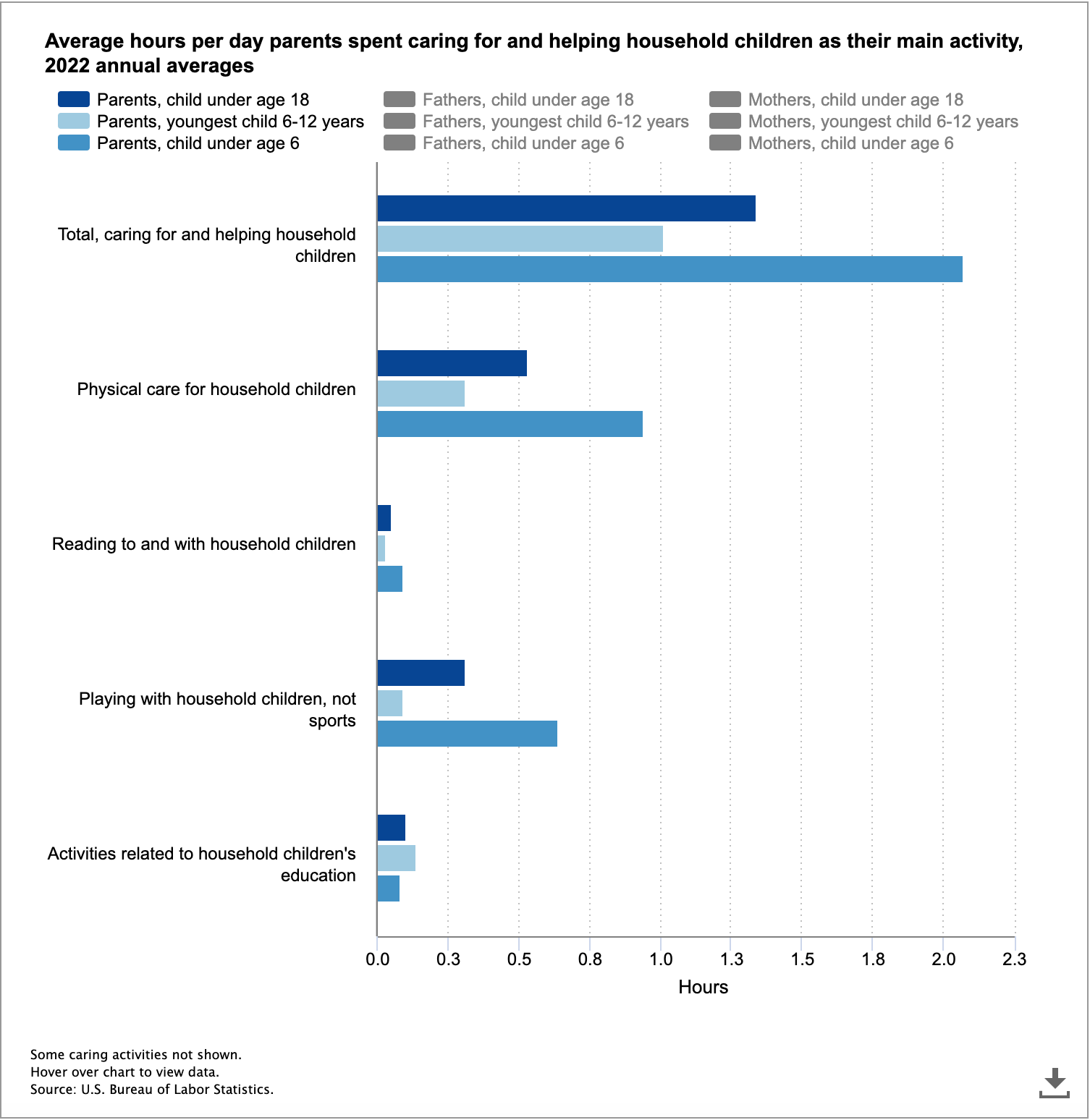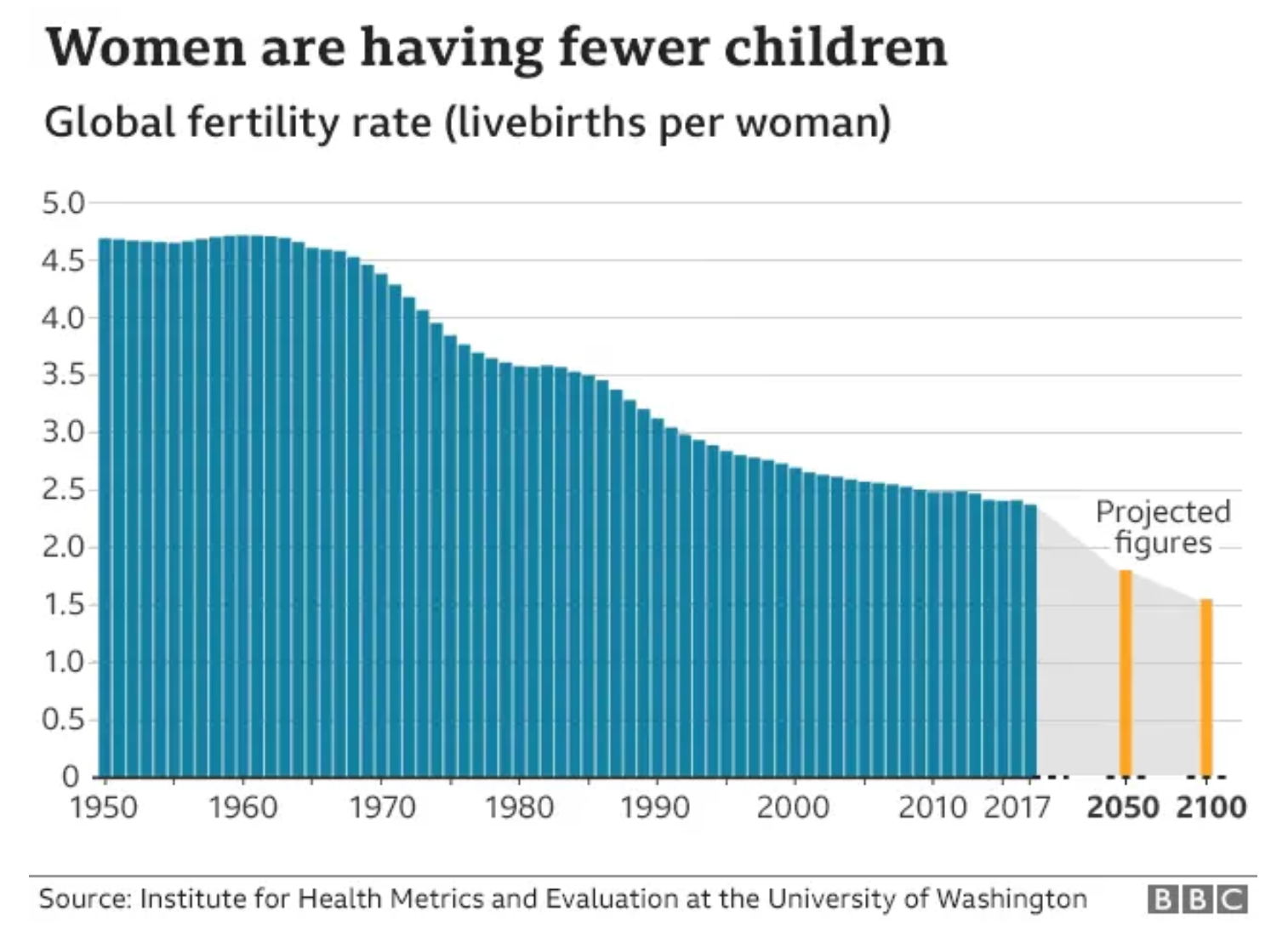Susty Baby
Mindset of Change
How Far I'll Go by Auli'i Cravalho
“The miracle that saves the world, the realm of human affairs, from its normal, ‘natural’ ruin is ultimately the fact of natality, in which the faculty of action is ontologically rooted. It is, in other words, the birth of new [people] and the new beginning, the action they are capable of by virtue of being born. Only the full experience of this capacity can bestow upon human affairs faith and hope.”
Hannah Arendt
So, you made the bold yet natural choice to procreate, and now you are a parent. Maybe you ask yourself: what kind of world will my child grow up and live in? While climate doomists might answer this question with sentiments of anxiety, a biodiversity crisis and climate refugees, with new life comes new hope. There is no more cyclical economy than the circle of life. Children give us a chance to revisit long held assumptions and see life anew.
Nonetheless, philosophical concerns quickly give way to practicalities when faced with a crying newborn. So, how do you raise a child as a responsible human that cares about the planet?
Principles
All parents prioritize what they believe is best for their child, and sustainability is just one of many criteria. There is so much nuance that comes with location and individual circumstance that general principles prove more useful than strict rules.
- Embrace circular economy. Try to buy secondhand (and reuse!) as much as you can. With the big exception of car seats and safety equipment, children's toys, clothes and paraphernalia can be reused. Kids change quickly and they grow out of things very fast. Gently used is usually as good as new. Pass it on when its time!
- Time > stuff. Prioritize time and interaction over stuff. What children need more than anything is to learn from their parents. Talking or reading to them, taking walks in nature, and physical affection are usually the highest value things you can give your kids. When you are doing your best to be a responsible human on the planet, they learn from you.
- Energy. Kids take a lot of energy, from you and from your utilities provider. Extra laundry, dishwashing, and microwaving add up quickly. So do stress and an increasing draw on decision making capacity. Make plans and reevaluate periodically to keep your progress from unwinding. Conservation of energy is important on many levels. Be kind to yourself!
In the end, the old standby rings true: be present and don't take things for granted. Even though children may seem to take over our lives sometimes, the time we have to raise them right is not long and the ripple effects are felt by us in our old age and in the world at large. On average, parents spend only 2 hrs a day with their children, and this dwindles down closer to 1 hr as they get older.

The things to do
It is somewhat disingenuous of me to offer practical advice and tips on something I've yet to experience myself, but I did some research so you don't have to.
The Great Diaper Debate. Do you buy disposable plastic diapers or do you buy reusable cloth diapers? (vox.com). The overall logic goes something like this: plastic diapers go straight to landfill and then eventually become microplastics and methane, but cloth diapers take a lot of water and detergent (not to mention time) to clean, plus the cotton needs to be grown, which is not usually sustainable.
There is also the complication of whether you intend to have more children. If you intend to have more children, the lifespan of the cloth diapers increases greatly (especially with gentle washing). High-energy washing is the problem with cloth diapers.
The general answer is:
- recycled cotton diapers, washed in cold water and air dried with biodegradable soaps, are the most sustainable
- new cotton diapers, washed in cold water and air dried with biodegradable soaps, are the next most sustainable (try to find sustainably grown cotton)
- better disposable diapers (e.g. Healthy Baby or other options)
- regular disposable diapers
- recycled cloth diapers washed in hot water and using a dryer
- new cloth diapers washed in hot water and using a dryer
One other note: cloth diapers are easiest to launder with newborns because they do not eat solid food. Once solid food becomes solid poops, cloth becomes harder to clean. The best solution seems to be flushable diaper liners.
Baby food. There is a LOT of information about baby food, and unfortunately, it's quite difficult to identify what is just paid research or marketing. The general consensus seems to be that old school baby food and formula is highly processed, neither sustainably nor reliably produced, and dubious in terms of health and safety. Recalls on formula happen often and there is evidence that many baby foods contain dangerous amounts of heavy metals and toxic pesticides. Processed jarred baby foods, juices and snacks also have higher levels of sugar and fats, and lower levels of fiber (ncbi.nlm.nih.gov).
In general, this makes sense to me. Our food has a nutrition problem. Although most fruits, vegetables, and grains look bigger and better than ever, on average they have 25-50% less nutrients than they did 70 years ago (see post on Composting for more information). In order to reach the high nutritional content required for baby food in the correct serving size, companies would need to process more raw foods, concentrating not only nutrition but undesirable things like pesticides and heavy metals. Then, in order to correct for taste, they add sugar. It also means that, because the quantity of ingredients needed is much larger, there is more opportunity for bad apples to make their way into the batch (literally).
So what to do?
Well, this isn't to say there aren't good brands out there. The Good Trade has taken a pass at collecting some. It should not come as a surprise that they are largely European companies (or US based companies that adhere to European standards) because Europe has not degraded the nutritional value of their food to the extent that the US has. They also have much stricter regulations (focusforhealth.org). So there's one clue: find brands from the EU or that adhere to EU standards.
Another popular solution is making your own baby food. Although this might conjure up visions of Vitamixes and flashbacks to that time you tried to get into juicing, it can be as simple as mashing up whatever you're having for dinner. And by mashing, I mean premastication, which is how people managed to transition babies to hard foods for centuries before Gerber existed. Even though it has a bit of an ick factor, it has real health benefits (ncbi.nlm.nih.gov). And if you do want to be less...ahem birdlike...in your approach, I liked this article from Bon Appetit.
Electronics. It probably comes as no surprise that the general consensus is to reduce and restrict children's screen time (mayoclinic.com). This is not new to the era of smart phones. My parents used to tell us that 'too much TV will rot your brain.' The perhaps more surprising conclusion, arising from an extensive report from the Pew Research Center, is: you need to restrict your own screen time.
Telling your kids to spend more time outdoors, or 'go read a book,' or go out with friends, will be much more effective if you yourself spend more time outdoors, reading books or spending time with friends. Your kids learn from you, and when you are spending too much time on your phone or computer, they will do it too.
Ultimately, we live in a digital age, and in some cases, even education comes on a screen (although full disclosure: I have some serious doubts about that). Nonetheless, digital interaction is new to the human brain, and we should respect the millennia of evolution that have made human brains grow in response to real world experiences. Although some level of digital stimulation may be beneficial (and in the end, probably inevitable) relying too heavily on smart phones or tablets to entertain your kids has some pretty proven downsides (ncbi.nlm.nih.gov).
Nature. Playing outside is important for kids, not only from the standpoint of raising a responsible human in the era of climate change, but from the more basic perspective of physical and mental health (healthychildren.org). It's also good for their immune system (livescience.org)! Saturday picnics in the park? Yes. Maybe bring a speaker and play some music? Definitely. (www.ncbi.nlm.nih.gov)
A little meta commentary to close.
Most developed countries have reduced levels of childbirth (ncbi.nlm.nih.gov), and many governments have tried to incentivize people to have more children for the good of the economy. As if providing the future labor force is what parents dream of for their children!

From a sustainability perspective, a slow reduction in population would be a good thing, and despite alarmist propaganda from the likes of Elon Musk, it might not be so bad for the economy.
"While many assume population decline would inevitably harm the economy, researchers found that lower fertility rates would not only result in lower emissions by 2055, but a per capita income increase of 10 percent."
Scientific American
Imagine if that 10% increase in income was not used to juice the stock market through Q4 holiday shopping sprees, but instead gave us the breathing room to reconnect with our families (smaller though they may be), our communities and nature? What if the economic pressure of a reduced labor force, less committed to overconsumption, forced us to actually deal with issues like corporate influence in politics, fiscal overspending, and the dissolution of communities through rent seeking behavior? What would happen if we reprioritized our commitment to family and community over corporate success, and the creation of real value over the accumulation of wealth? What if we actually changed what it means to live well?
Our planet cannot afford to support so many people at the level of consumption we have in the US (see Shopping), and yet, it would be grossly unfair for people in developing countries (who will already experience the worst effects of climate change) to be restricted from accessing a higher standard of living. And therein lies the true answer: we need fewer people, but we also need more responsible people. We need to redefine the model of developmental success, so that developing countries have something better to aim for.
Children give us that chance to revisit long held assumptions and see life anew. It would a great shame if our hard won lessons about living responsibly and sustainably were lost, if this growing body of wisdom were not passed down. It would be a tragedy if humankind never actually figured out how to live responsibly on this planet. So, all that to say: create the new beings! and teach them to be good humans! With new life comes new hope.
For when the kids are a bit older: citizen science with my favorite app Seek!
And for bird watching: Merlin!
Heck, why not get started now? After all, the kids learn from you!